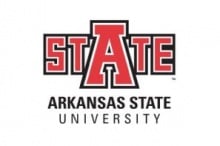Ritter Communications Makes Contribution to A-State’s EARIS Project

(Jonesboro, AR) - Ritter Communications recently committed $266,000 in in-kind support to Arkansas State University to assist with the opening of the East Arkansas Regional Innovation System (EARIS), which will begin operating late this summer.
Under the i6 Challenge program, A-State's Delta Center for Economic Development submitted a successful application for $500,000 to help establish the EARIS, and Ritter’s support will help provide equipment and services for the project.
EARIS is a collaborative regional partnership that will offer support and resources for entrepreneurs and inventors in the area and aims to foster opportunities for innovation and entrepreneurship in rural east Arkansas communities.
“Technology business incubators are proven successes in other communities. We’re happy to support a program like this that enables innovators and entrepreneurs in rural eastern Arkansas to expand and grow," said Ritter Communications President Alan Morse. "We’re a local company, and part of our mission is giving back to the communities we serve. We appreciate Arkansas State University’s leadership and vision for the East Arkansas Regional Innovation System, and we’re honored to be a part of the large group of local entities that have all worked hard to make it happen.”
A-State will utilize i6 funds and matching to leverage local, state, and federal partnerships and for EARIS's creation and launch. Combined with $886,967 in in-kind matching, A-State's i6 project has $1.39 million in total support.
While all of the partners' contributions are vital to the project's success, the Delta Center representatives emphasized the extraordinary contribution to the project from Ritter Communications. The equipment and services provided by Ritter will be put to use at the Proof of Concept Center, where the makers-space and co-work space will be located.
Led by the Delta Center for Economic Development, this system is expected to produce increased job creation and retention through business start-ups, support for entrepreneurs, and development of commercialized products within one of the poorest and underserved regions in the U.S.
“We are thrilled to be the first Economic Development Administration i6 Challenge recipient in the State of Arkansas," said Delta Center Executive Director Shawnie Carrier. “The EARIS project is a perfect example of how collaborative partnerships and leveraged dollars can produce enormous regional impact.”
About Ritter Communications
Ritter Communications, founded in Marked Tree, Arkansas and headquartered in Jonesboro, began providing local phone service in 1906. Today, Ritter serves 59 communities and more than 45,000 customers in northeast and north central Arkansas, southeast Missouri, as well as, west Tennessee with advanced voice and data services typically found only in major metropolitan areas. Ritter invests heavily in the communities it serves by deploying proven, best-in-class infrastructure and technology while coupling it with a world-class customer focused experience.
Residential consumer services include local and long distance phone service, cable television and high speed Internet. Business services include customized communications systems and services, including broadband Internet services, Managed Voice, data center services, Ethernet connectivity, customized networking and hosted applications. For more information, visit rittercommunications.com or facebook.com/rittercommunications.
About i6 Challenge
The i6 Challenge, launched in 2010 as part of the Startup America Initiative, is now in its fifth iteration. The i6 Challenge is a national competition that makes small, targeted, high-impact investments to support startup creation, innovation, and help turn technology into jobs. The funding supports the development and expansion of new and existing Proof-of-Concept and Commercialization Centers, which help innovators fine tune and scale their innovations to bring new products and services to the market.
Applications were evaluated in part on the strength of their specific outreach plans to populations and communities that are underrepresented in innovation and entrepreneurship and on specific, quantitative metrics to measure the effectiveness of that outreach.


